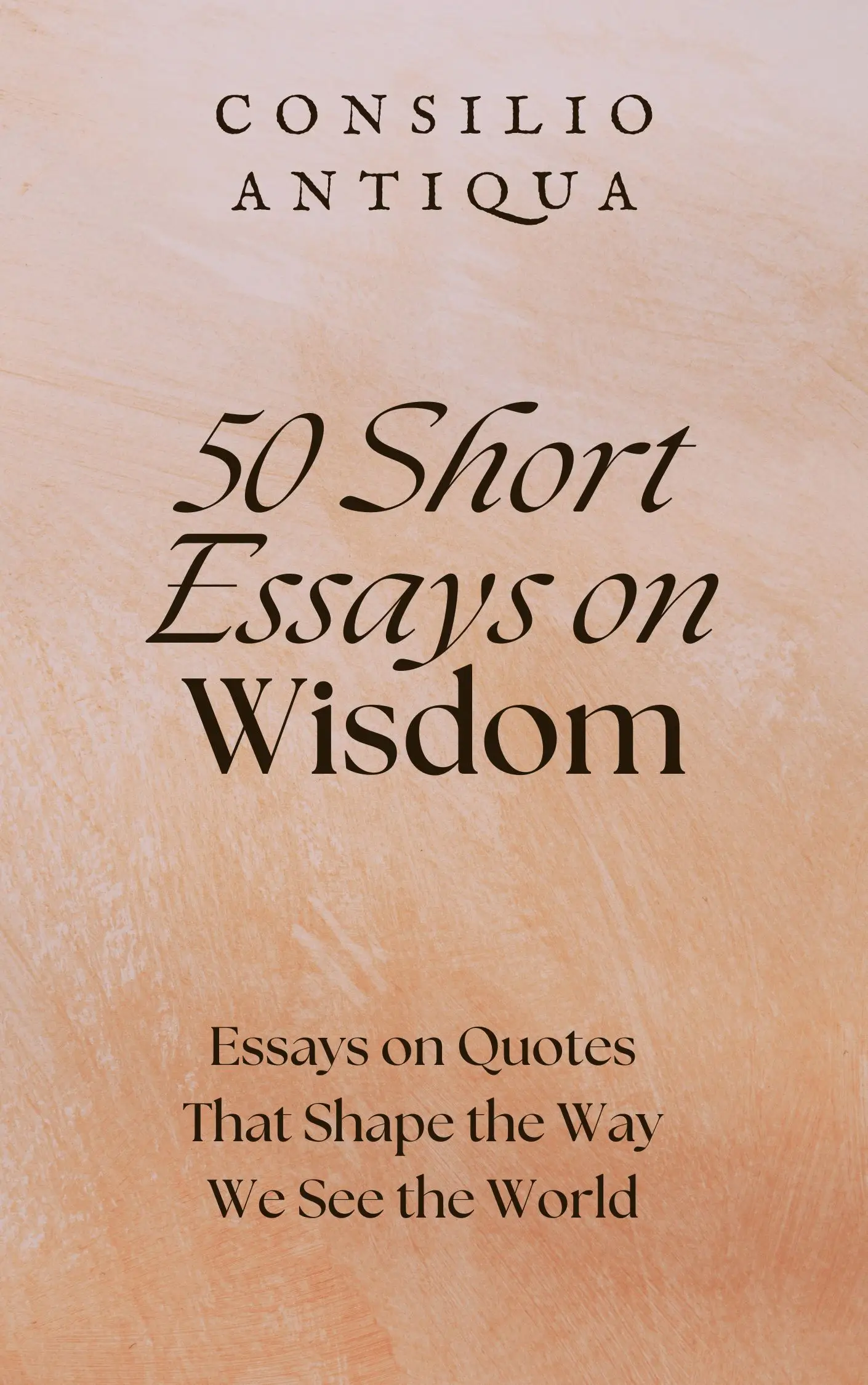
50 Short Essays on Wisdom | The Slow Alchemy of Time
The Slow Alchemy of Time
"Time heals all wounds." - Menander
My grandmother’s death felt like a rip in the fabric of reality, a sudden absence that left a void echoing in the silence of her empty chair. The initial shock gave way to a grief so profound it felt physical, a weight pressing down on my chest, stealing the breath from my lungs. Menander’s assertion, “Time heals all wounds,” felt like a cruel mockery in those early, desolate days. Yet, years later, while the pain remains a faint ache, a whisper in the quiet corners of my memory, its sharp edges have softened, its intensity muted. This essay explores the enduring wisdom of Menander’s adage, acknowledging its limitations while celebrating the transformative power of time in the intricate process of healing.
Menander, a prominent Athenian playwright of the 4th century BC, lived in a world where fate and the capricious nature of the gods held sway. His words, imbued with the wisdom of his era, suggest a belief in the inherent restorative capacity of time, a natural process that, given sufficient duration, could mend even the deepest wounds. This perspective aligns with the cyclical nature of life often depicted in ancient Greek mythology, where death and rebirth are intertwined, suggesting a continuous process of renewal.
The core of Menander’s wisdom lies not in the complete erasure of pain, but in its transformation. Healing is not a linear progression toward a state of painless oblivion; it is a complex, often nonlinear journey through grief, acceptance, and ultimately, a reintegration of the self. The wounds may leave scars, indelible marks on our psyches, yet these scars, like the lines etched on an ancient tree, tell a story of resilience, of survival, of the human capacity to endure. The wisdom endures because it speaks to a fundamental truth about the human experience: we are beings capable of profound suffering, yet also of remarkable adaptation and growth.
In our contemporary world, saturated with instant gratification and the relentless pressure to "move on," Menander's wisdom offers a counterpoint. While modern psychology emphasizes active intervention – therapy, support groups, medication – time remains a crucial element in the healing process. Consider the individual grappling with the loss of a loved one, the survivor of trauma navigating the complexities of PTSD, or the person navigating the dissolution of a long-term relationship. These experiences, profoundly different in their specifics, share a common thread: the need for time to process, to integrate, to rebuild. Yet, the pace of healing is not uniform; cultural contexts, individual resilience, and access to support systems all play a significant role. The adage’s limitations become apparent when we consider those wounds that refuse to fully heal, those that require ongoing care and attention.
Reflecting on my own experience, I recognize that time hasn't erased the pain of my grandmother's death, but it has reshaped it. The sharp, agonizing grief has softened into a poignant memory, a bittersweet reminder of a life lived fully, a love that transcends death. The empty chair no longer evokes a sense of crushing loss, but a quiet appreciation for the moments shared, the lessons learned, the legacy carried forward. What are your own experiences with the healing power of time? What wounds have time’s gentle hand softened? What scars remain, bearing witness to your journey?
Ultimately, Menander’s assertion serves not as a simplistic promise of effortless healing, but as a gentle reminder of time's transformative potential. It is not a passive process, but an active one, requiring self-compassion, acceptance, and the courage to face the complexities of our own emotional landscapes. Time, like a slow alchemist, transmutes pain, not into nothingness, but into something new, something stronger, something more profoundly human.
